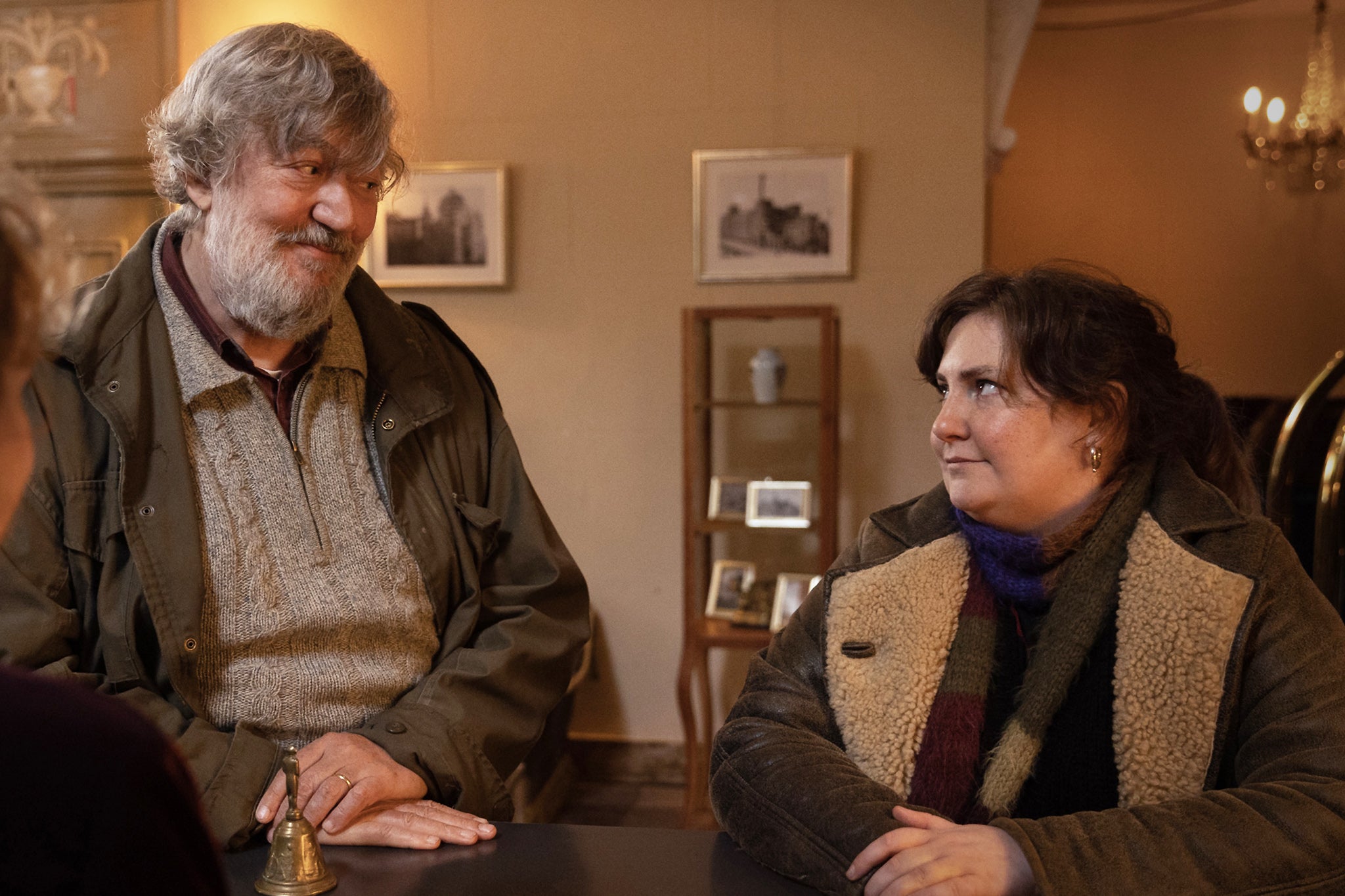Treasure, Berlin Film Festival review: Stephen Fry and Lena Dunham make for a fun if unlikely double act
The pair star as a father and daughter in a gentle drama about survivors of the Holocaust

Your support helps us to tell the story
From reproductive rights to climate change to Big Tech, The Independent is on the ground when the story is developing. Whether it's investigating the financials of Elon Musk's pro-Trump PAC or producing our latest documentary, 'The A Word', which shines a light on the American women fighting for reproductive rights, we know how important it is to parse out the facts from the messaging.
At such a critical moment in US history, we need reporters on the ground. Your donation allows us to keep sending journalists to speak to both sides of the story.
The Independent is trusted by Americans across the entire political spectrum. And unlike many other quality news outlets, we choose not to lock Americans out of our reporting and analysis with paywalls. We believe quality journalism should be available to everyone, paid for by those who can afford it.
Your support makes all the difference.Treasure, a gentle character-based drama starring Stephen Fry and Lena Dunham, addresses the Holocaust very differently to other recent films, among them Jonathan Glazer’s stark and terrifying The Zone of Interest or Bianca Stigter’s equally disturbing archive-based Three Minutes – A Lengthening. The film, adapted from Lily Bret’s novel and a world premiere at the Berlin Festival this weekend, uses whimsy and anecdote instead of shock tactics. At times, it plays more like a sitcom than a story about the legacy of the death camps. Thankfully, it still provides probing insight into everything from casual antisemitism to the plague of historical forgetfulness.
Fry and Dunham play father and daughter Edek and Ruth who, in 1991, travel from New York to Poland to visit Auschwitz-Birkenau. He is a Polish survivor of the camps. She is a journalist desperate to find out about her past.
It takes a few moments to get used to Fry’s heavy eastern European accent, but the British actor gives a charming and moving performance. His Edek is a white-whiskered and eccentric figure, continually cracking jokes and tipping the Polish hotel staff extravagantly. We can see the prisoner number on his arm but he steadfastly refuses to discuss what he experienced. Nor does he seem to show much interest in revisiting the haunts of his youth, for instance the home he was taken from when he and his family were sent to Auschwitz. His wife recently died but he won’t talk about her, either. Nor will he acknowledge his Jewish roots.
Ruth, meanwhile, is a music journalist. Her father, who embarrasses her by calling her “pumpkin,” is inordinately proud of the fact she once interviewed the Rolling Stones. She’s waspish and witty but also a clearly unhappy figure who eats too much junk food and is still getting over the break-up of her most recent relationship.
Dunham and Fry have an effective comic rapport. She continually rolls her eyes at his dad jokes and idiosyncratic use of English. He embarrasses her by talking frankly about sex and exasperates her by never sticking to her plans. They make an appealing odd couple, with Dunham as the grumpy Walter Matthau-type to Fry’s ever optimistic Jack Lemmon.
German director Julia von Heinz does a good job of evoking early Nineties, post-communist Poland in all its greys and monotony. At times, the story risks stalling. Like its two lead characters, it simply doesn’t seem to know where it is going. Father and daughter drift around Poland in the back of a taxi with a very accommodating driver. Edek doesn’t want to travel by train - but not for the reasons we first suspect. Late on, the pair finally visit Auschwitz-Birkenau. Given that they whizz around on a caddy car, these scenes could easily have seemed crass and insensitive. Instead, they are surprisingly tender.
Treasure is likely to be far more accessible to a general audience than more forbidding Holocaust movies. It skirts close to mawkishness at times – and some of the character-based comedy feels a little forced – but is still likeable and engaging, generally dealing with very dark subject matter in a sure-footed way.
Dir: Julia von Heinz. Starring: Stephen Fry, Lena Dunham, Zbigniew Zamachowski. 112 minutes.
‘Treasure’ screens at the Berlin Film Festival from today until 22 February, and is awaiting a UK release
Join our commenting forum
Join thought-provoking conversations, follow other Independent readers and see their replies
Comments